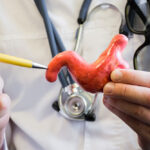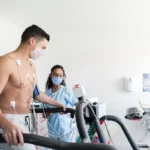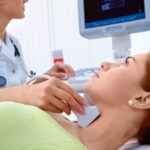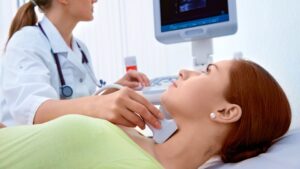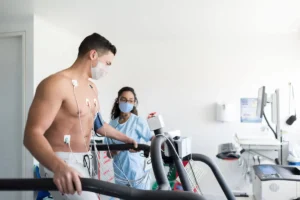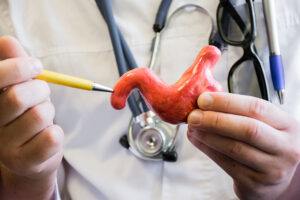Little Reminders for Newborns
Child Health

Little Reminders for Newborns
- A healthy newborn is an active baby who has completed the 37th week of pregnancy and was born weighing between 2500-4000 grams.
- In the first week, 5-7% weight loss is normal as babies’ edema resolves. A baby reaches birth weight after 10 days and gains 600-700 grams after one month.
- Jaundice in newborns is an important problem. It generally occurs in the first week of life. It is more common in premature babies, poorly fed babies, and those with blood incompatibility (mothers with type O blood while babies have type A or B, or mothers who are Rh-negative while babies are Rh-positive). This condition should not be neglected; you should consult a pediatrician and have the jaundice level measured. The doctor will tell you whether the jaundice is dangerous or not. Jaundice starts first in the whites of the eyes, then spreads from the face to the body and arms. Untreated jaundice can cause permanent brain damage (intellectual disability, deafness, seizures, involuntary movements) in the child.
- A newborn baby should be bathed at the earliest 3 days after birth, and the umbilical cord should be dried immediately afterward. A wet umbilical cord falls off late and frequently becomes infected. The umbilical cord generally falls off between 3-15 days. If there is bleeding or discharge after the umbilical cord falls off, you should consult a doctor. An outward protrusion at the umbilical area may be an umbilical hernia. This hernia is harmless. It generally corrects itself by age 1-2 and does not require surgery.
- Every baby should be given vitamin D from the 15th day until at least 1 year of age. It is not important if the anterior fontanelle (soft spot) is closed or small. At least 400 IU (3 drops) of Dvit3 should be given to every baby daily. Deficiency leads to a bone weakness disease called
. In this disease, excessive sweating of the head and body, decreased resistance to infections, bone weakness, wrist enlargement, leg deformities, inability to stand properly, and delayed walking can be detected. Since active vitamin D is abundant in sunlight, it would be very appropriate to expose our babies to sunbathing for 20 minutes daily (except between 11 AM – 3 PM) in suitable weather conditions after their 2nd month. - Iron stores passed from the mother during pregnancy are sufficient for babies born on time for the first 6 months. If babies need iron supplementation, it is given as 1 drop per kilogram of body weight (for example, 7 drops for a 7-kilogram baby) until 1 year of age. Iron medications can cause digestive problems (diarrhea, constipation) and green or black stools in babies.
- At the end of the 1st month, it would be very good to bring your babies for hip screening with ultrasound (USG). Especially first babies, girls, cesarean babies, those with positive family history, and children with orthopedic problems are the highest risk patients for hip dislocation (developmental hip dysplasia). Hip ultrasound can be performed between 1-3 months. 3. It is not very appropriate to perform it after the month. If necessary, we can take hip X-rays after the 6th month.
- Newborn babies sleep as much as they need. Sleep needs may be less in the first days. In the following days, they may need to sleep more. It is known that newborn babies sleep more comfortably in a frequently cleaned bed.
- Babies should sleep without pillows until they reach 2 years of age. The ideal room temperature for babies until 2 years of age is 22 degrees. Babies should not be put to bed immediately after feeding during this period.
- No specific time should be set for breastfeeding. Newborn babies should be breastfed immediately when they are hungry. The milk that comes after the first 10 minutes of breastfeeding is more fatty. Therefore, babies begin to feel full after nursing for 10 minutes. For this reason, care should be taken to nurse from one breast and to nurse from the other breast at the next feeding time.
- When babies are newly born, their bowel movement frequency is between 6 to 8 times. Stools are greenish in color in the first days, then turn yellow in the following days.
- Babies’ nails can cause harm to their own eyes. Therefore, gloves should be used in the first days. In the following days, you need to cut their nails with a special nail scissors for your baby. You don’t need to wait for the baby’s 40th day to cut their nails. Nails should be cut when they extend beyond the nail bed.
- Babies hiccup when air gets trapped in their stomachs. Hiccupping is quite natural. It is not a sign of any disease.
- Pacifiers should not be given to babies for the first 3 months after birth.
- Sneezing doesn’t always mean they are cold. Babies may sneeze frequently to expel mucus or secretions that accumulate in their noses.
- Babies cannot smile or make sounds until they are 6 months old. Therefore, until they are 6 months old, they can only make sounds when crying. Don’t expect babies to use their voices during this process. At the same time, they cannot make facial expressions like smiling or laughing.
- Don’t wait for them to cry for feeding. When babies are hungry, their behavior may change slightly. These behaviors can be increased mouth movements, sucking motions, or trying to reach out. Try to observe these movements. Over time, you can understand when they’re hungry and breastfeed immediately. Breastfeeding without waiting for crying makes your baby much more peaceful.
- You can tell if the baby is full from head movements. Sometimes they may be full in a few minutes, but sometimes it may take 15 minutes to be full. If they turn their head away from the breast, they may want to take a break. Continue to hold them in your arms, close to the breast. After waiting a few minutes, bring them close to the breast again. If they turn their head away again, it means they are full.
- The closure of babies’ fontanelles begins after 6 months and can continue until 18 months. If the fontanelle closes before 6 months or after 18 months, you must consult a doctor.
- If the mother does not have vitamin deficiency, babies do not need vitamin supplementation for the first 6 months. However, it should not be forgotten that they need to be exposed to sunlight for vitamin D.
- Wiping newborn babies’ bodies is wrong. When babies are born, their entire bodies are covered with a special fat layer, and this fat layer helps babies maintain their body temperature. Wiping the baby’s body will cause them to lose this fat layer called vernix, which will cause them to get cold.
- Due to the mother’s hormones, babies may experience breast enlargement when they start breastfeeding. This is completely normal. The breasts should never be squeezed or massaged. The baby’s breasts will return to normal very quickly.
- Babies can see at a distance of 20 to 25 cm when they are born. They can see you and hear your voice. Therefore, you can talk to your baby frequently. Hearing the mother’s voice will help babies be more peaceful. There is no harm in holding them in your arms frequently. On the contrary, babies feeling the mother’s warmth helps them calm down.
- When babies are born, their head shapes may look different. This is because the skull bones come into the world in an overlapping state. The shape distortion in babies’ heads corrects itself in a few days. It is not a cause for concern.
- Newborn babies can sleep with their eyes open. This situation should not cause concern in families. Also, for the first 3 weeks, they don’t shed tears when they cry. This is also a normal process.
- Newborn babies sleep much more comfortably when they take baths. There is no harm in bathing every day. However, remember that their skin will dry out and you need to moisturize their skin with an appropriate product.
- Babies’ ears secrete a substance that resembles beeswax. This secretion allows the ears to clean themselves naturally. However, sometimes ear infections can develop in newborn babies. This infection should not be confused with ear secretion.
- Babies spend half an hour awake out of every 4 hours. Therefore, they may need to be woken up for feeding. If the baby doesn’t wake up on their own, they should be woken up and fed every 3 hours.
General Surgery 5





